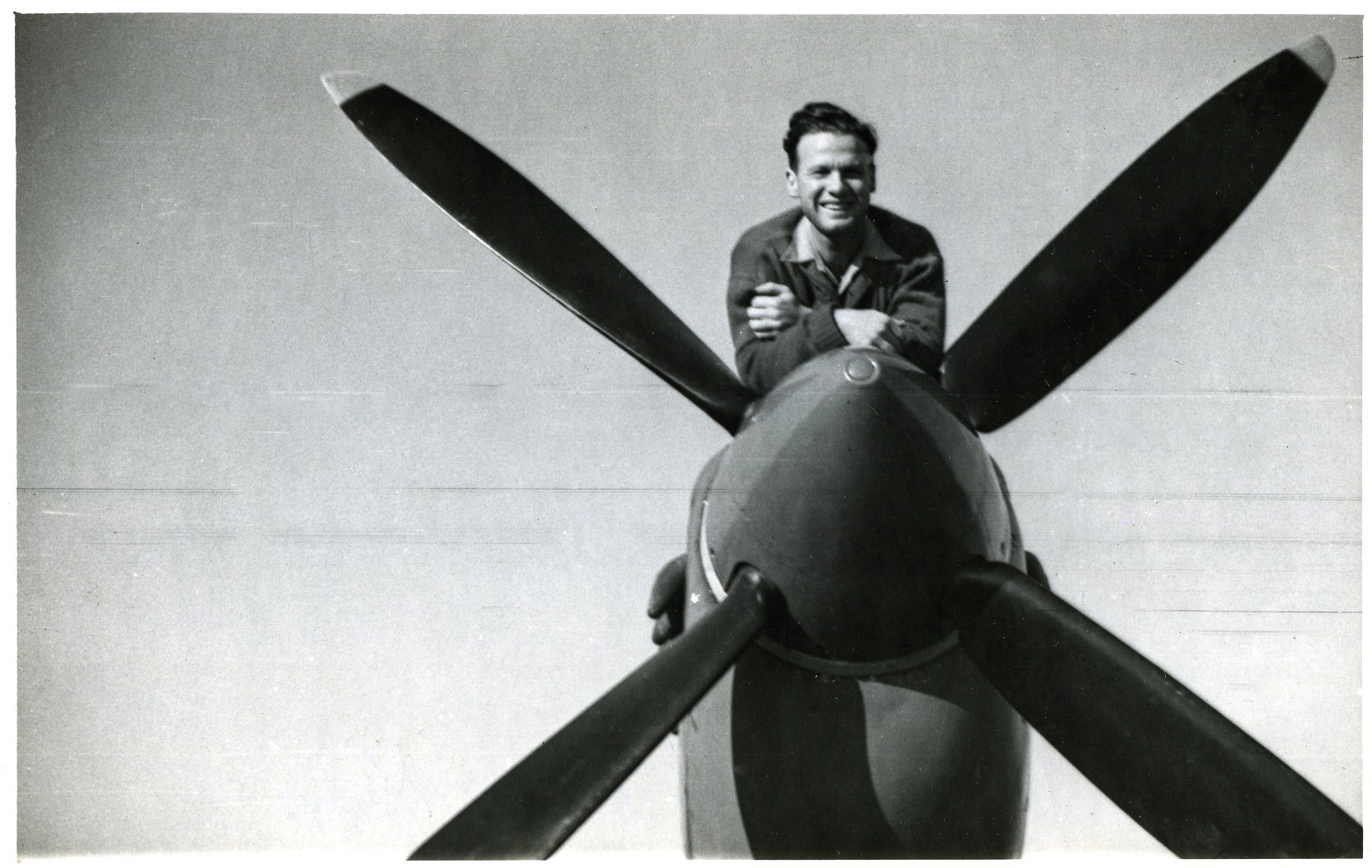Judaism, like any major religion, has too much history to digest readily. For that reason, while the Seattle Jewish Film Festival includes far more than its documentaries, they provide bite-sized morsels—or approaches, really—to an ancient, amorphous whole. First, however, let’s stipulate that the 20th SJFF includes social and musical events, fun profiles of composer Marvin Hamlisch and comic performers David Steinberg and Sophie Tucker, plus acclaimed new dramas that open and close the fest (Hanna’s Journey and Mr. Kaplan, respectively). But among 30-plus films screening over 10 days, here’s an historical, nonfiction selection.
Because I love all World War II movies, Above and Beyond provides a fascinating postscript to one conflict while also launching a new national chapter. There was no Israeli Air Force when—before Israeli statehood was declared in ’48—the Brits pulled out of Palestine and five Arab countries stood poised to invade. What I didn’t know about post-WWII history is that U.S. pilots of the Jewish faith—and others—would later resume their military careers in surplus old aircraft purchased despite an American arms embargo. As octogenarian L.A. native Lou Lenart recalls with due irony, he and his fellow flyers ended up in German-designed fighters, wearing secondhand Luftwaffe uniforms, battling the Egyptians’ superior British-made planes. The odds were completely against them. On the ground, before and after the first Arab-Israeli war, there was enough black-market intrigue to warrant a feature film: fake airlines, illegal arms shipments, and bored, horny pilots boozing and carousing from New York’s Copacabana nightclub to Panama to Rome before they even reached combat. An affecting and unexpected cameo comes from Pee-Wee Herman (aka Paul Reubens), whose Hollywood stunt-pilot father was shot down in combat. Dangling in his parachute, speaking not a word of Hebrew, that pilot saved his skin from Israeli groundfire in an incident that almost plays like a comedy routine when read by Reubens from his father’s diary. Nancy Spielberg—yes, sister of Steven—is the film’s producer. (1 p.m. Sun., March 22.)
Steven Spielberg’s own family is famously diverse and inclusive, though more intentionally so than that of the middle-class Schwartz clan in liberal Woodstock, New York. There, the only child in a Jewish household, Lacey Schwartz eventually grew curious during the ’90s as to why—apart from her father’s supposedly dark Sicilian lineage—her skin tone didn’t match her parents’. As we see Little White Lie, director Schwartz has surely experienced some of the same mixed-race confusion of her fellow Harvard Law grad Barack Obama. What makes her film so confounding is that she didn’t guess her secret parentage until college. Her filmmaking voyage of self-discovery—after “a lifetime of lies”—recalls the locally made A Lot Like You, seen at SIFF ’11, by Eliachi Kimaro. Here Schwartz tenderly reaches toward a family reconciliation that may never come. (6:30 p.m. Thurs., March 19.)
On a national scale, reconciliation also seems impossible in the evenhanded Holy Land, filmed by Peter Cohn in the occupied West Bank during 2011–12. At the film’s start, there’s the fresh optimistic glow of the Arab Spring, as Palestinian villagers seek redress in Israeli courts against the illegal land-grabs of Israeli settlers. In Wisemanesque fashion, Cohn allows both sides to speak for themselves: the Arabs grouse about water and electricity shortages; the settlers exude a kind of Aquarian zealotry. Meanwhile a dogged Peace Now activist tries to usher both parties into judicial process; and we see how the inevitable stones-versus-tear gas protests can have fatal consequences. Then the positions harden into a frozen conflict that seems destined to outlast the Cold War. A smiling, hippie-dippy L.A. settler casually dismisses “some Arab mob” in racist shorthand; and a cheerful, tech-savvy young Palestinian blogger finally joins the enraged Islamist protesters at a cousin’s funeral. You’re left with the grim sense that integrating North and South Korea will be child’s play compared to this. (8:20 p.m. Sun., March 15.)
A more personal but frustratingly elusive view of Israel’s violent birth comes from Write Down, I’m an Arab, a rather too laudatory profile of the Palestinian revolutionary poet Mahmoud Darwish (1941–2008). Displaced as a child by the 1948 nakba, Darwish was later a PLO member and ’70s confidante of Yasser
Arafat. He spent half his life in exile, the darling of European leftists, traveling among various cities and gathering an international string of lovers. Two women, an Israeli Jew and a Syrian Christian, talk intimately about their old paramour, but we get little sense of the man beyond newsreels and dull, heroic poetry gone hopelessly out of fashion. Fond of booze, women, and cigarettes, Darwish and his secular company have been totally eclipsed by Hamas and ISIS. An ex-wife lovingly calls him “my tragic poet,” like some dated figure from the 19th-century Romantics. It’s hard to see what future significance he’ll have in the funda-fied Middle East. (4 p.m. Thurs., March 19.)
Down in South Africa, however, we can surely still draw inspiration from the example of Albie Sachs, a white Jewish member of the ANC who barely survived a government assassination attempt in 1988. Soft Vengeance relates how this stoic, loyal colleague of Nelson Mandela endured imprisonment, exile, and the loss of an arm and eye with remarkably little bitterness. Among his admirers here are retired Archbishop Desmond Tutu, Nadine Gordimer, and the Notorious R.B.G. herself—Justice Ruth Bader Ginsburg! (A documentary about her is surely forthcoming.) Appointed by Mandela to South Africa’s highest court, the now-retired jurist Sachs recovered from divorce, wrote his memoirs (the basis for this movie), and married again. The final beach scenes with his second wife and young son show that, even after apartheid, a fresh start is still possible. Alfre Woodard narrates. (8:10 p.m. Tues., March 17; director Abby Ginzberg will attend.)
bmiller@seattleweekly.com
SEATTLE JEWISH FILM FESTIVAL Runs Sat., March 14–Sun., March 22 at Pacific Place, SIFF Cinema Uptown, and Stroum Jewish Community Center (Mercer Island). $5–$18. Tickets & info: 324-9996, seattlejewishfilmfestival.org.








